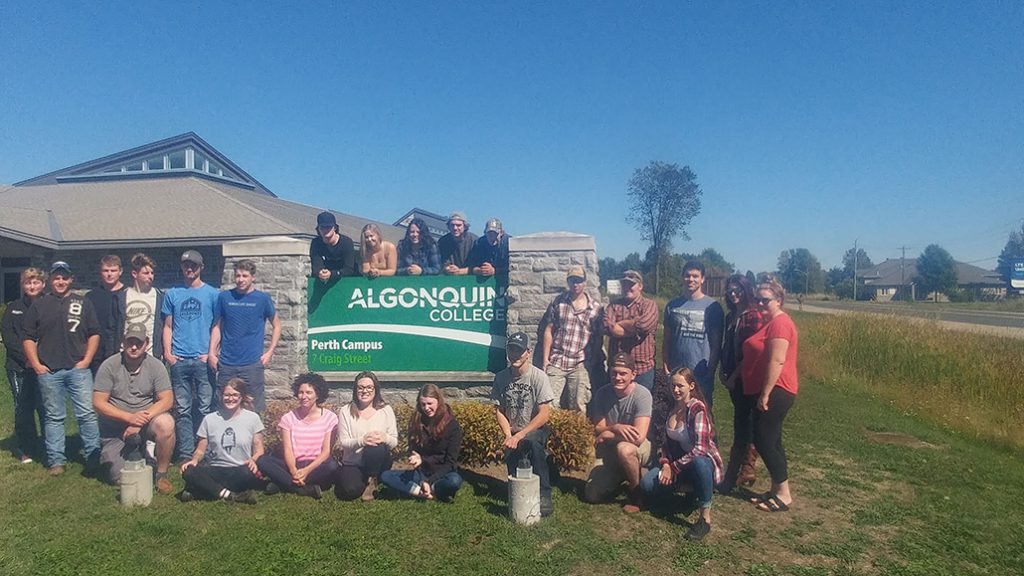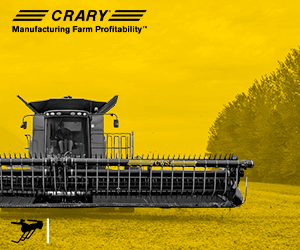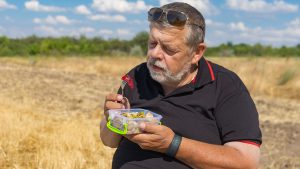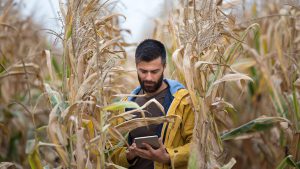Learning the business of agriculture
NEW DIPLOMA OFFERED AT ALGONQUIN COLLEGE

THIS SEPTEMBER, ALGONQUIN College in eastern Ontario will welcome its second group of students into its new two-year Business-Agriculture Diploma program (with co-op option), first launched in September 2019 with 28 students at the college’s campus in Perth near Ottawa.
About two-thirds of the first entrants (who are entering their second and final year this fall) are from farming families, reports the college’s Business-Agriculture Coordinator Martin Savard. While recruitment efforts were focussed on eastern Ontario last year, about one-fifth of students came from western Ontario.
The program includes courses on farm operation as well as a large number of business courses with content that relates to both on-farm specifics and the larger agri-food sector.
“We touch on farm safety, agronomy, crop production, livestock production, dairy operation, but also on accounting, finance, marketing, human resource management, transition planning, and business planning,” says Savard. “Capstone courses in the final semester see the students assembling a long-term business plan and completing a directed project.”
All the instructors are connected to the agricultural industry, and Savard says developers of the program have “relied heavily” on input from more than 100 farmers and agriculture industry players.
FILLING A NEED
The program came about after the University of Guelph shut down Kemptville College about five years ago, which left those in the eastern Ontario region with no local options for agriculture-related educational programs. At the same time, industry members in the region were also very interested in seeing a program start up again — but that program needed to have specific content.
“Unanimously, we were advised to integrate a substantial amount of business curriculum into the program, recognizing that farmers are businesspeople,” Savard explains.
“So, not only does it bring post-secondary agricultural education to eastern Ontario, it also fills a gap that is starting to be addressed by some other colleges, supplementing technical knowledge with strong business and farm operation training. Students will graduate with skills necessary to successfully assist in farm operation, or to work for a company that provides services to farmers. Our co-op employers show that there is a huge demand in sales and account management, but also an emerging number of employers are looking to bring technology onto farms.”
Algonquin College welcomes industry involvement (through private companies and commodity associations) for guest speaker presentations, bursaries, scholarships, and awards. In addition, farmers themselves are needed as sources for research papers and case studies in both the production and business-related courses. The overall response from the agriculture community has been excellent.
“We’ve been extremely fortunate,” Savard says. “Farmers have welcomed students with open arms for business discussions, guest speaking arrangements, and farm tours. We also had five employers sign up for every interested co-op student, which is very exciting for graduates’ employment prospects. We know that the industry is very interested in maintaining its participation, and we’re about to double-down to further integrate them into the program as we move to our second year.”
PANDEMIC ADJUSTMENTS
As a result of COVID-19, leaders at most educational institutions in Ontario had to decide in advance about how programs would be delivered this September, before they even knew what the provincial government and public health authorities would allow. Both students and institutional staff needed certainty. For this program at Algonquin College, as with many others, it’s been decided that delivery will be mainly online for the fall semester.
“This means Zoom classrooms and we’re working at adapting the content,” Savard explains. “As farmer and industry participation is key to our program, we’re looking at bringing guest speakers into the classroom virtually and we’re working at adding virtual farm tours on video. If the public health authorities and the College allow it, we’ll include traditional farm tours, conference participation and workshops as well. We’re hopeful that the situation will rectify itself for the winter semester.”
There is some disappointment, apprehension, and anxiety among students over the fall semester being delivered in a less-traditional manner due to pandemic-related restrictions, but Savard says “we have a strong group of teachers and support staff that plans to coach them through the experience.”
SECOND-YEAR STUDENT PERSPECTIVES
Harpreet Kaur, who immigrated to Canada from India after finishing a bachelor in agriculture degree there, started the program last year because she believes knowing the business side of agriculture is very important for increasing productivity and also for growing the industry in general. She says she wouldn’t change anything about the content, other than she’d like to see even more practical production knowledge. Kaur doesn’t have a specific job goal in mind for after the program, but is open to anything related to her studies.
Brett Hamilton started the program last year straight out of high school, and as he plans to open a hoof trimming business, he wanted to gain some business knowledge.
“If I am going to invest in a business, to take that on and make it a success, I want to be confident with the financials,” he says. “I’m very happy with the program and I’m already applying what I’ve learned in first year this summer at my summer job at a feed store. I’ve also started my own small sheep flock.”
What Hamilton wants to learn about most in the second year is how to market his future business. “I’d like to know how I should sell my services and my skills as a hoof trimmer, how to get my name out there,” he says. “We did have a marketing course in first semester but it was more focussed on selling products, and I’d like more information on selling services. I’m excited to see what the second year brings.” •












